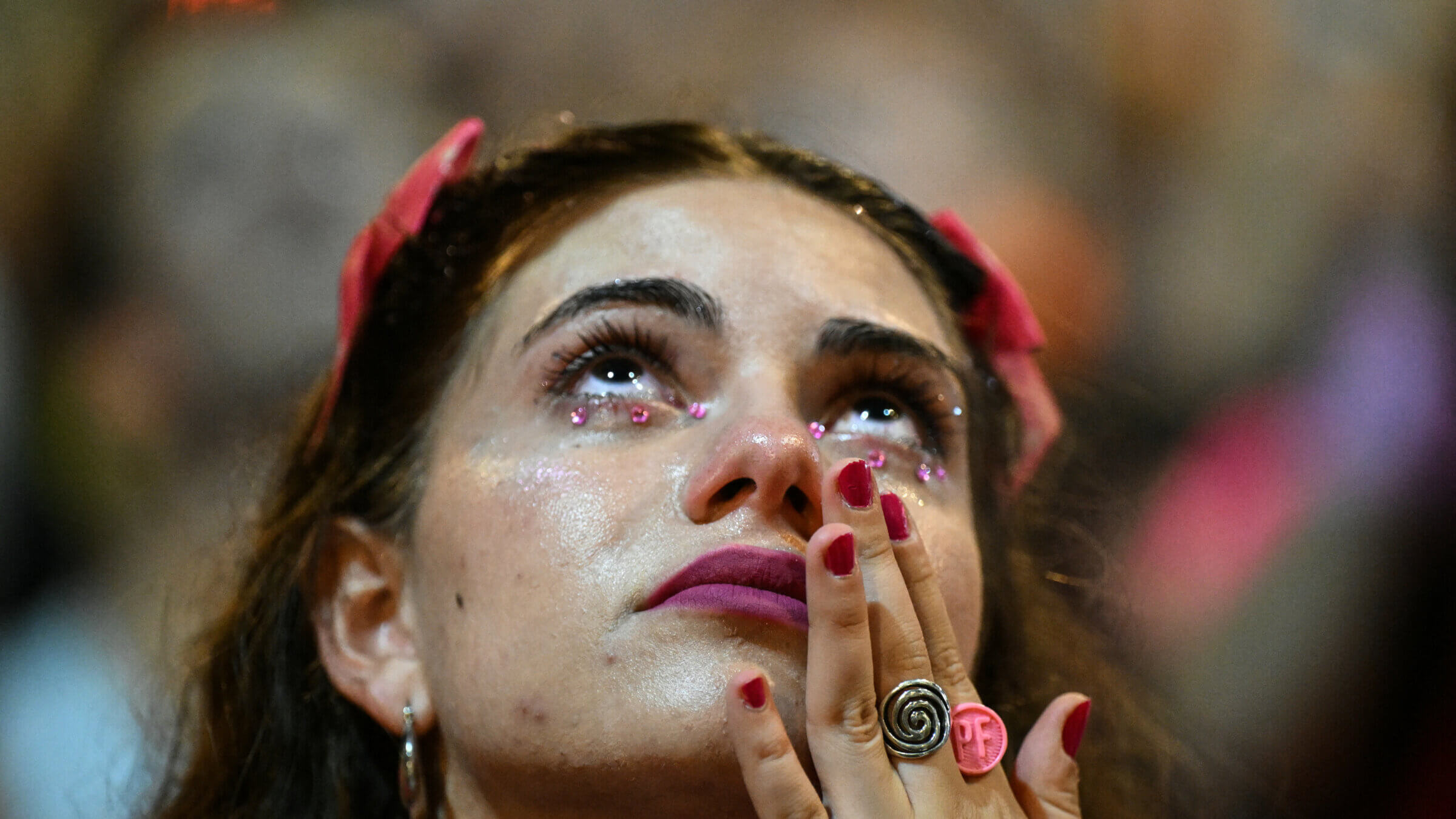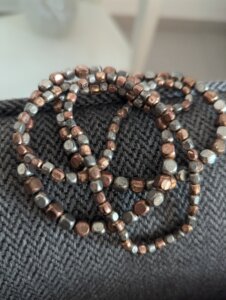In a Tel Aviv jewelry store, a green necklace tells the story of life in Israel during wartime
These days, a sense of relentless fear underscores even the most seemingly mundane interactions in Israel

In Tel Aviv, a woman takes part in a protest against the Israeli government. Photo by Getty Images
TEL AVIV — I was in a central Tel Aviv jewelry store where everything is handmade by the owner. A fellow shopper was spending a long time deciding which necklace to buy. She finally settled on a green necklace. She also bought two fans — fans that you hold in your hand, I have learned, can be a fashion accessory in the summer heat here.
But after the woman paid, she burst into tears.
“What am I doing buying jewelry at a time like this?” she cried. “Who can even think of jewelry?”
The owner of the store — a single mother of two children — immediately nodded. “We all feel this way.”
“What will become of us now?” the customer asked, as a few other shoppers gathered, telling her the necklace she picked was beautiful, that she deserves to have jewelry, that it’s important to live. Titchadshi, they said, the traditional Israeli comment after buying something new. Renew yourself.
But the shopper’s question — what will become of us now — stayed with me.

That question is something that’s been missing from news coverage of the ongoing war between Israel and Hamas, as well as Hezbollah, the Houthis, and of course, Iran, which is behind all of it. This week marked 300 days of war, and with two high-profile assassinations, many ordinary people in the Middle East are bracing for the next bad thing to happen.
All the smart TV commentators are talking about the likelihood of retaliation; social media is full of advice about how to get supplies ready for a long stay in a bomb shelter. And many ordinary people are asking existential questions about whether there is a future.
In Tel Aviv, the pent-up frustration and fear has been relentless, and it manifests itself in big and little ways; women are sleeping in their bras because they don’t want to run down to the bomb shelter and have their neighbors see a little too much. The jewelry-store owner told me that she and her children are planning to sleep in the mall, because the store is below ground and safer than their apartment; they have done this before during missile alerts.
A woman I know told me she knows five — five! — hostages. I can’t stop thinking about it.
Another woman, who graciously picked me up at the train station to take me to a gathering of local writers, told me that her Modi’in neighborhood is renaming paths in local parks in memory of fallen soldiers. But they have a problem. So many neighborhood young men have died that they have run out of paths.
Therapists have been working nonstop. In Tel Aviv, a social worker friend of mine pointed out a woman talking on the street. She explained that this woman began talking to herself after Oct. 7. “Everyone deals in their own way,” she said.
I walked out of the jewelry store with a dark-green wooden bracelet, two delicate necklaces, and a pair of earrings. I believe in living on. I hope the woman with the green necklace and I both look glamorous if we need to run to a bomb shelter tonight.























